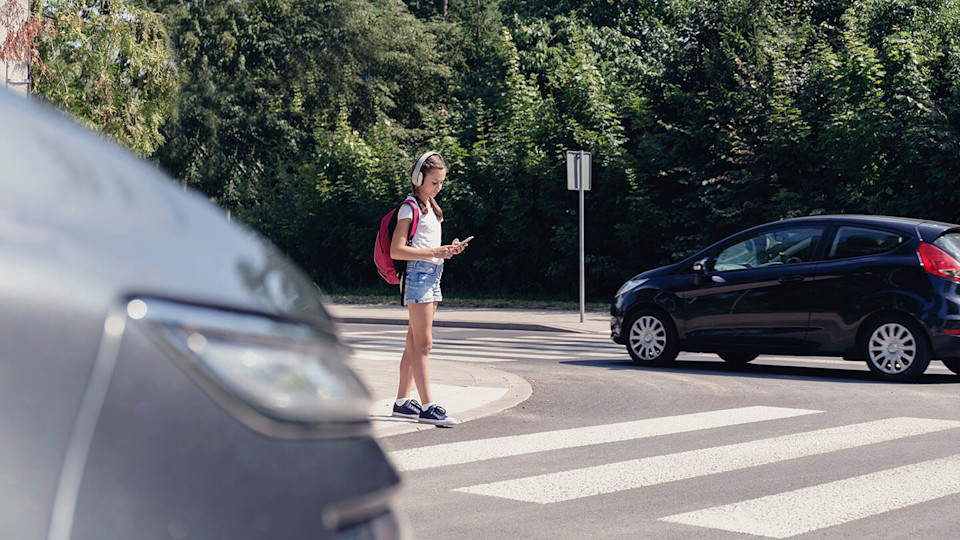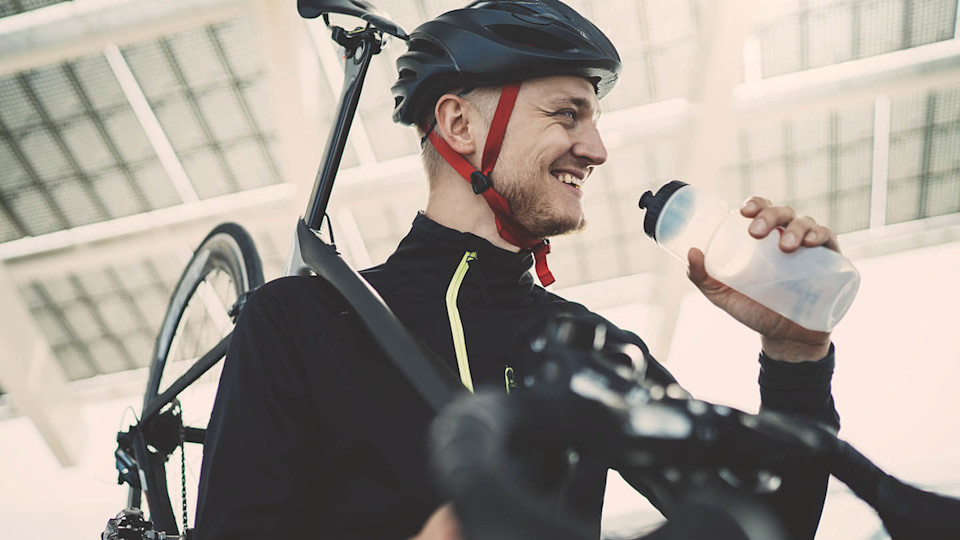Local councils have a responsibility to maintain the public spaces we use each day, including roads, pavements and public buildings. If they have failed in this duty, and you’ve been injured as a result, you could be entitled to claim compensation against the council.

Personal injury
Tracey Benson and Kate Nicklin answer your questions on the Highway Code
After receiving numerous questions from the public on the effects of the new changes to the Highway Code, road accident specialists, Tracey Benson and Kate Nicklin provide the answers you need.
On 29 January 2022, changes were made to the Highway Code which has caused some confusion amongst the public.
We therefore asked the public what they were most concerned about so our road accident experts, Tracey Benson and Kate Nicklin, could answer those questions and hopefully provide some clarity.
Highway Code Q&A - Part 1
Highway Code Q&A - Part 2
The transcript of their answers is as follows:
Whilst agreeing with the hierarchy, will cyclists have to have mandatory lights at night as you can't see them most of the time, especially on poorly lit roads?
The Highway Code will use the words MUST or SHOULD within the rules. If the word MUST is used then this means if the rule is broken then the road user is committing an offence at law. The Code states that cyclists MUST have white front lights and red rear lights lit when cycling at night.
Why have the Department of Transport changed the Highway Code?
From the Government communications we've received it appears that changes to the Highway Code are to enhance safety for all road users and particularly those most at risk of serious injury including pedestrians and cyclists. The Roads Minister has indicated that the update will ‘bring the Highway Code into the 21st Century, encouraging people to respect and consider the needs of those around them’. Others have commented that the changes to the Code will encourage everyone to feel confident and safe to cycle or travel by foot.
How will the law be enforced when using the 'Dutch Reach', i.e. opening the driver's door with your left hand?
The description of the 'Dutch Reach' is an advisory rule within the Code. It's designed to improve awareness of cyclists and reduce accidents. It has actually always been the case that you could be fined for causing an accident in this way and the introduction of this technique into the Highway Code hasn’t changed that. It simply provides advice and clarity for road users to improve safety. Failure to use the follow the Highway Code and use the Dutch Reach could be used as evidence in the event of an accident.
How is the Government ensuring that all road users, especially those with a driving licence, are aware of the changes?
A number of people have informed me that they're not aware of how the rules have changed, which is concerning. I know, when out walking my dogs each morning and crossing at junctions that the changes just haven’t cut through yet. The changes came into effect on 29 January 2022 and the Government guidance on 26 January 2022 stated that they'll ‘soon’ launch their ‘Think!’ campaign to raise awareness of the change. We've seen a huge amount of campaign from groups who represent the interests of vulnerable road users, such as Cycling UK, police forces up and down the country, Sustrans, RoadPeace and Brake.
If there's a cyclist cycling in the centre of the lane, as a motorist, am I not able to overtake at all?
Cyclists are permitted to cycle in the centre of the lane if they feel it's the safest place for visibility, although they are encouraged to move to the left so vehicles can overtake on busy roads. The Highway Code does confirm that motorists can overtake cyclists if it's safe to do so, even if this means going into the opposite lane. The obligation is to ensure it's safe to overtake and also to ensure that the required passing distance of 1.5 metres below 30 mph and 2 metres above 30 mph is complied with. The Code clarifies that it wouldn’t be safe to do so when there is a junction on either side of the road, where the road narrows or when approaching crossing facilities.
I've read that you may get fined if you don't follow the Highway Code. Who fines you and how will then enforce this?
The rules within the Highway Code are described using the words MUST or SHOULD. All the rules should be followed but if you breach a rule which is described using the word MUST, then you've committed an offence. For example, failing to stop when a pedestrian has moved onto a crossing. If you're caught by the police this would result in a prosecution and a fine. If you breach a rule described using the word SHOULD, for example, you should let pedestrians have priority at junctions, then breaching the code doesn't mean you've committed an offence per se, but if an accident occurred, the breach would be used as evidence against you in support of a careless or dangerous driving prosecution.
As a cyclist, if I'm involved in an accident, how much will the Highway Code affect any criminal or civil proceedings?
Many of the rules within the Highway Code have a legal requirement and any breach could be a criminal offence. If a criminal offence has been committed, this can be relied upon in any case which may follow. From a civil perspective any breach of the Highway Code, could be considered to be negligent which would form the basis of a civil claim should they cause someone to suffer injury or harm.
I get the sense a lot of police don't feel the need to investigate any but the most serious of incidents. Are they obliged to?
In a minor collision where there are no apparent injuries at the time, the police are not generally required to attend the scene. In the event of a serious road collision involving personal injury the police will be called to the scene where they will investigate the incident and whether any offences have been committed. The changes to the Highway Code won’t change this but breaches of the code can be used to support any prosecutions they decide to make. The severity of the incident such as whether it has resulted in a fatality or very serious injury will determine the level of investigation. For example a very severe incident would require a collision investor, vehicle examiner and family liaison officers.
In the event of an accident, does the updated hierarchy establish a burden of proof on any one party, and what's the advice on gathering evidence?
No. The hierarchy introduced with the Highway Code changes doesn't establish a burden of proof as a principle. It will depend upon the circumstances of the accident and whether there has been a breach of the Highway Code. There has certainly been a shift to protect more vulnerable road users, but the Highway Code has not gone as far as to establish a burden of proof. In the courts, generally speaking as there are exceptions, the prosecution and the person making the claim will still have the burden of proving there has been a breach of the Highway Code and/or that an offence has been committed. In certain circumstances, it may now be easier to establish fault, as the rules are very clear as to the duties of road users.
Where there has been a serious accident, the person injured and their family need to focus upon treatment and rehabilitation. The police, despite their often stretched resources, will obtain photographs, witness statements and will prepare a report. My best advice is to instruct a solicitor who specialises in specialist personal injury and do so at the earliest possible stage as they can instruct experts, inspect vehicles and attend court to obtain much needed evidence to progress the claim.
Do they believe that there should be more Highway Code testing, rather than the one and done approach as it is now?
Most people don’t refresh their knowledge of the Highway Code. Road users should however keep up to date with any changes and refresh their memory. The Highway Code is available to view online and there are also Highway Code Facebook and Twitter pages. The DVSA also has an online account that you can subscribe to for updates regarding the Highway Code and any changes made. We're not aware of any plans to require road users to re-sit their theory tests for example.
If you have any further questions you would like to #AskTheExperts, please DM us on Facebook, Twitter or Instagram.
Alternatively, if you've been injured in an road collision, contact one of our experts today.


Micase RTA is a claims portal providing an innovative new way of making a compensation claim for whiplash. Read more to find out how micase can help you.


We understand how life-changing road collisions can be for both you and your loved ones. RoadPeace is a national UK charity which supports road crash victims and their families, both emotionally and practically. Read more about our partnership with RoadPeace.